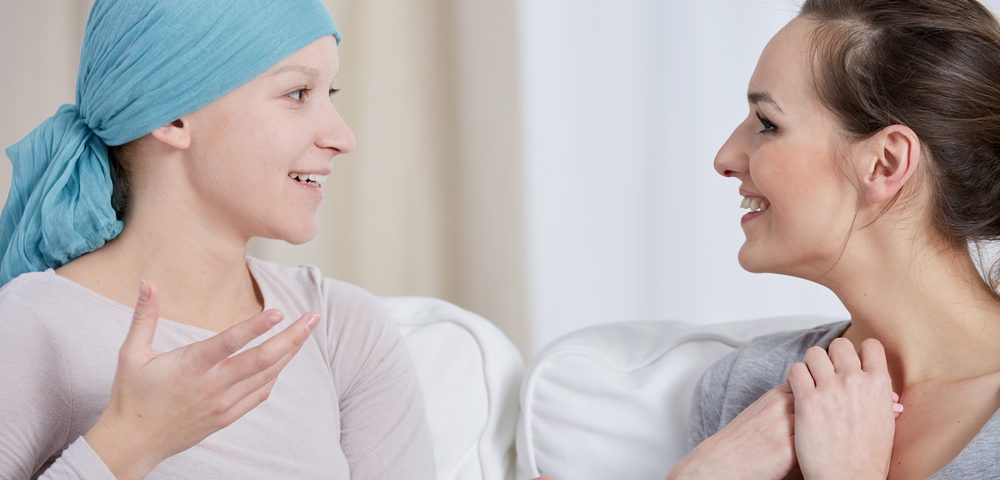When somebody you know is diagnosed with cancer, it’s often a helpless feeling. What should I say to them? What should I NOT say? Should I send them something? Make a casserole? Buy them a pet zebra?
When I first announced my diagnosis, nearly everyone treated me like a lost puppy. “Awwww, I’m sooo sorry,” as they looked down at me with wide, telescope-like eyes that inspected my face for traces of emotion. Their forlorn faces were swathed in pity for a girl with tough luck. A wilted flower.
We don’t want people to feel sorry for us. We just want somebody to tell us that we’re going to be okay. Don’t make us drown in a sea of your melancholy tears. We need an ambassador of hope. We need a friend.
‘Well, what does that mean? How exactly do I be a friend?’
It’s easy, guys. We learned this stuff when we were in kindergarten.
Ask if they want to borrow your crayons, or sit next to you at the lunch table. See if they want to hang out after school, or play on the swings at recess. Bring them an extra cupcake in your Mickey Mouse lunchbox. I’m talking about the basic acts of kindness that we learned as children — the same ones that, as adults, we tend to shy away from.
As adults, we now have egos, social awkwardness, and selfish tendencies. We will procrastinate reaching out to people in need because we “don’t know what to say” until it’s too late, and then we sweep these neglected relationships under a rug like they never existed. It’s the worst thing you can ever do to a cancer patient.
One simple message is all you need to send. A card, a text, a carrier pigeon if you must, saying “I’m here for you if you need me. You’re a strong person and you are not alone in this fight. Let me know if there is any way I can help.”
Boom! You can even copy and paste that.
Next up: What not to do.
Do not offer your medical advice. A cancer patient doesn’t want to hear about how your great aunt Myrtle beat her cancer by drinking gluten-free unicorn tears and practicing reiki. Or how you read on the internet that there is a monastery in Switzerland that heals sick people with medieval medicine and coffee colonics. Bite your tongue. You may think you’re helping, but you’re undermining our intelligence and our ability to make smart medical decisions about our bodies.
Refrain from personal questions. If we feel comfortable enough with you, you will know the details of our diagnosis. If we didn’t personally tell you any details, why do you need to know? If you have a burning question, like “Are you going to need chemo? What kind of mastectomy are you getting?” the newly diagnosed person probably doesn’t know those answers either. We’re spinning in circles from the revolving door of doctors’ appointments. We don’t even know what’s going on. You’ll find out when you find out.
“OK, but I still want to send them a gift. What should I buy?” I adore you, because I agree that shopping is fabulous. So, don’t worry, I’ve got you covered. I’ll leave you with a little curated list of gift recommendations from a highly esteemed shopping pundit. Moi!
For the close friend or immediate family member:
Books, inspirational cancer-related apparel, fuzzy slippers, gift cards, “best friend” jewelry, a nice bottle of wine that they can look forward to having after treatment, movies to watch during chemo or after surgery, a new Mercedes S class, etc.. Whatever your heart tells you!
For a co-worker/professional relationship:
A card signed by the office, or a small floral arrangement. A foodie gift basket; because nobody in their right mind turns down a present that’s full of cheese and chocolate truffles.
For an extended family member, old friends, acquaintances:
Your kindness and emotional support is really all that’s needed. Don’t wait too long to send that first text/email/card. If you do wait too long, you’ll need to refer back to the first tier gift category, and make your amends with that Mercedes.
Namaste friends and pink sisters.
***
Note: Breast Cancer News is strictly a news and information website about the disease. It does not provide medical advice, diagnosis, or treatment. This content is not intended to be a substitute for professional medical advice, diagnosis, or treatment. Always seek the advice of your physician or other qualified health provider with any questions you may have regarding a medical condition. Never disregard professional medical advice or delay in seeking it because of something you have read on this website. The opinions expressed in this column are not those of Breast Cancer News, or its parent company, BioNews Services, and are intended to spark discussion about issues pertaining to breast cancer.


According to the National Cancer Institute, approximately 1,600 people in the United States are diagnosed with MCC every year. While the majority of patients present with localized tumors that can be treated with surgical resection, approximately half of all patients will experience recurrence, and more than 30 percent will eventually develop metastatic disease.